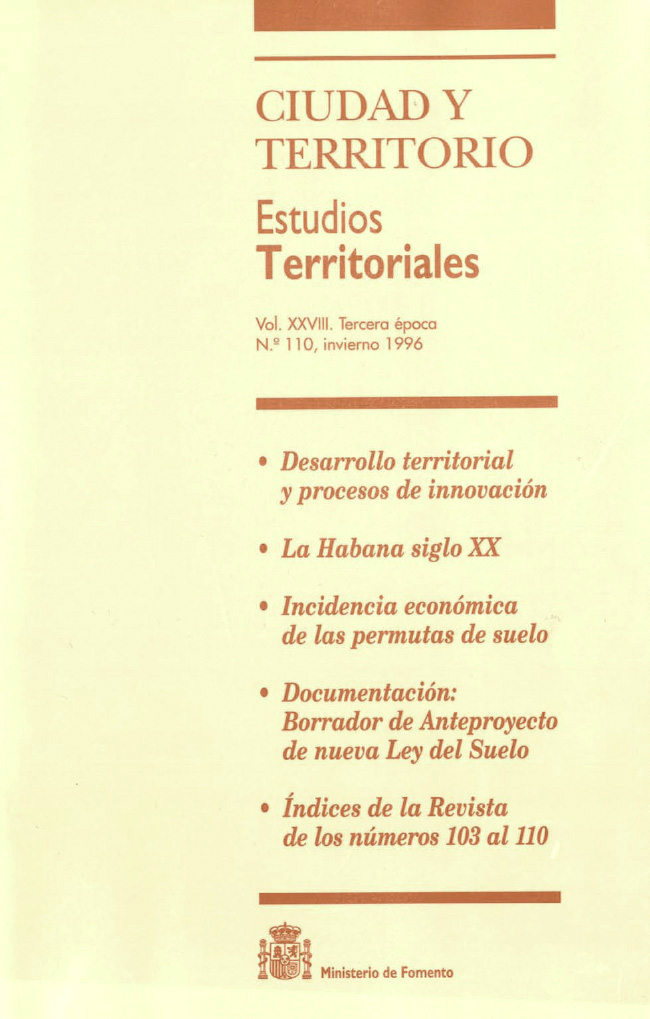Ground swapping: an analysis of the possible economic effects of real estate enterprise
Abstract
The author, basing himself upon standard figures as to the costs and sale prices for a representative housing project for social and fixed price residences applies evaluative techniques as to investment grounded upon paying in and out flow projections and profitability ratios thus comes at an estimation of the effect on potential benefits to the owners of the building ground, the promoters of the scheme and the house buyers if trading was made on the ground in question. These benefits are then contrasted against the figures offered by a classical housing initiative in which the ground would have been bought in at the very beginning of the operation. Further on into the paper, the economic margins offered through a negotiating of the profit to be made upon the ground for building for its owner and the promoter if a swapping operation is undertaken are examined and seen to show that neither would see their profits cut by this arrangement and that these would be no lower than those from a classical operation aiming at the same ends. The paper is rounded off by an analysis of the possible incidence of variations in certain economic variables such as construction costs, final price and scheduled date for finishing upon the operations previously projected estimates. Finally the author points up the economic advantages accruing from such swapping/trading operations.
Downloads
Downloads
Published
How to Cite
Issue
Section
License
Copyright (c) 1996 Juan Angelet Cladellas

This work is licensed under a Creative Commons Attribution-NonCommercial-NoDerivatives 4.0 International License.
Considering the provisions of the current legislation on Intellectual Property, and in accordance with them, all authors publishing in CyTET give -in a non-exclusive way and without time limit- to the Ministry of Transport, Mobility and Urban Agenda the rights to disseminate, reproduce, communicate and distribute in any current or future format, on paper or electronic, the original or derived version of their work under a Creative Commons Attribution-NonCommercial-NoDerivative 4.0 license International (CC BY-NC-ND 4.0), as well as to include or assign to third parties the inclusion of its content in national and international indexes, repositories and databases, with reference and recognition in any case of its authorship.
In addition, when sending the work, the author(s) declares that it is an original work in which the sources that have been used are recognized, committing to respect the scientific evidence, to no longer modify the original data and to verify or refute its hypothesis. Author(s) also declare that the essential content of the work has not been previously published nor will it be published in any other publication while it is under evaluation by CyTET; and that it has not been simultaneously sent to another journal.
Authors must sign a Transfer of Rights Form, which will be sent to them from the CyTET Secretariat once the article is accepted for publication.
With the aim of promoting the dissemination of knowledge, CyTET joins the Open Journal Access (OA) movement and delivers all of its content to various national and international indexes, repositories and databases under this protocol; therefore, the submission of a work to be published in the journal presupposes the explicit acceptance by the author of this distribution method.
Authors are encouraged to reproduce and host their work published in CyTET in institutional repositories, web pages, etc. with the intention of contributing to the improvement of the transfer of knowledge and the citation of said works.








 Enlace a CyTET en Linkedin
Enlace a CyTET en Linkedin